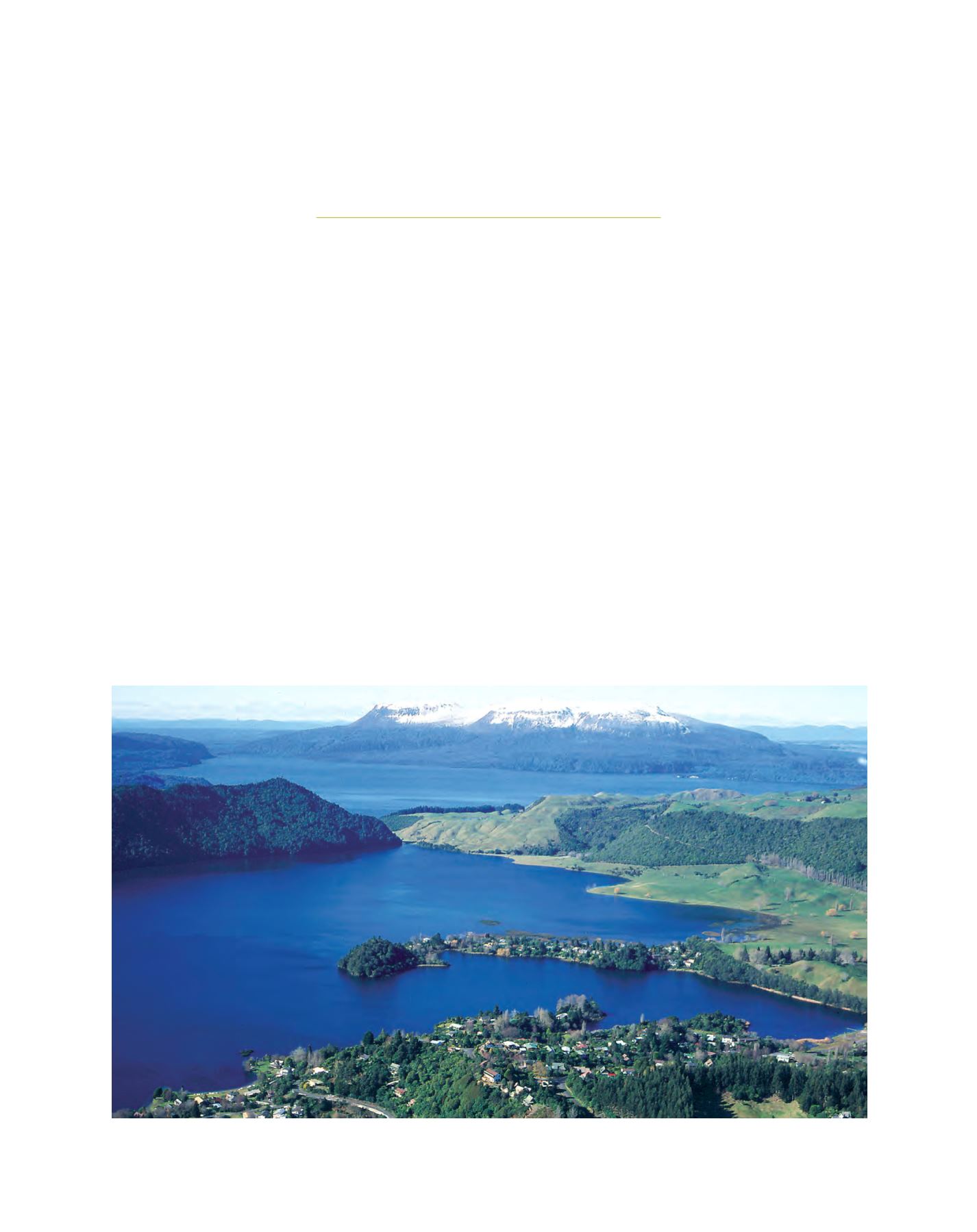

[
] 150
Benefits of sustainable
forestry management
Peter Clinton, Brian Richardson and Margaret Horner, Scion, New Zealand
F
orestry is New Zealand’s third largest export earner,
contributing 10 per cent of the country’s total overseas
earnings. The economic strength of this industry is based
on exotic softwood species that achieve growth rates among the
highest in the world. But these forests are much more than wood
and fibre factories. They offer environmental and social benefits
that make plantation forests an integral part of New Zealand’s
landscape and culture.
The evolution of plantation forestry
New Zealand is one of the world’s youngest nations. Up until 1,000
years ago, its islands in the South Pacific were uninhabited and
almost entirely covered in forest. Once people arrived these indig-
enous forests began to recede. While Maori began the process of
clearing land for crops, deforestation was greatly accelerated when
Europeans arrived in the 19th century. The slow growth rates of
native trees meant the forests were unable to recover from this
increasing onslaught.
Realizing that the forest resource was fast
running out, the pioneering Government initiated a
programme of reforestation using fast-growing intro-
duced tree species. By the early 1900s, these forest
plantations had become the basis of an industry that
could supply the nation’s timber needs, while even-
tually enabling protection of the remaining native
forests.
The New Zealand forestry sector now returns about
$NZ4.4 billion per year of export earnings in addition to
annual domestic sales of approximately $NZ1.8 billion.
This contribution to the economy is based on 1.8 million
hectares or 7 per cent of New Zealand’s land area.
1
Some 30 per cent of the commercial forest estate is
now in the second rotation, and approximately 20 per
cent of the forests are in the third rotation. The area
harvested is predicted to be nearly 49,000 ha per annum
from 2009 to 2019, and to exceed more than 83,000
Native and plantation forests form an integral part of the New Zealand landscape
Image: Scion
















